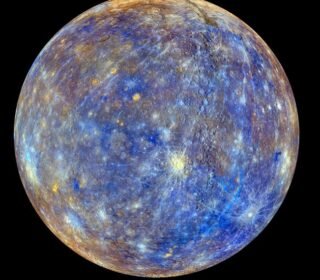Navalny’s death sparks outrage and protests in Russia and abroad

The death of jailed opposition leader Alexei Navalny has triggered a wave of condemnation and demonstrations in Russia and around the world. Navalny, who was a vocal critic of President Vladimir Putin and exposed corruption in the Kremlin, died in prison on Friday after losing consciousness. His supporters and Western leaders have blamed Putin’s regime for his death and called for an independent investigation.

Navalny’s wife says Putin is ‘personally liable’ for his death
Yulia Navalnaya, the wife of Alexei Navalny, has accused Putin of being “personally liable” for her husband’s death and vowed to continue his fight for democracy and justice in Russia. She said Navalny was “killed by the state” and that his death was “a stain on the conscience of the Russian nation.”.
She also thanked the millions of people who supported Navalny and his anti-corruption campaign and urged them to join the protests that have erupted across Russia and in several other countries. “He died for us, for our future, for our freedom. We owe him to carry on his mission and his legacy,” she said.
Biden: ‘Make no mistake, Putin is responsible’ for Navalny’s death
US President Joe Biden has condemned Putin’s regime for the death of Navalny and said the Russian leader should be held accountable for the “outrageous” act. Biden said Navalny was “a courageous champion of democracy and human rights” who “paid the ultimate price for his convictions.”.
Biden also announced new sanctions on Russia for its aggression against Ukraine and its interference in US elections. He said the US would work with its allies and partners to “impose significant costs” on Russia and to “support the aspirations of the Ukrainian and Russian people for a peaceful and prosperous future.”.
Russian TV spends just 30 seconds on Navalny’s death
Russian state-controlled television has largely ignored the death of Navalny and the protests that followed, devoting only 30 seconds to the news in its main evening bulletin. The brief report claimed that Navalny died of “sudden death syndrome” and that there was no evidence of foul play. It also accused Navalny’s supporters of “exploiting” his death for “political purposes” and of “inciting unrest.”.
The report contrasted sharply with the extensive coverage given to the death of Prince Philip, the husband of Queen Elizabeth II, who died on the same day as Navalny. Russian TV praised Prince Philip as “a symbol of loyalty and duty” and showed footage of his life and achievements.
Citizens warned not to take part in protests in Moscow
The Moscow prosecutor’s office has warned citizens not to take part in any unauthorized rallies or gatherings in the city, saying they would be “illegal and dangerous.”. The warning came as thousands of people took to the streets of Moscow and other Russian cities to mourn Navalny and to demand justice and political change.
The prosecutor’s office said the protests were “organized by foreign agents and extremists” who wanted to “destabilize the situation in the country and provoke violence.”. It also said the police would “take all necessary measures” to ensure public order and security.
Obituary: The man Putin refused to name
Alexei Navalny was born in 1976 in a provincial town near Moscow. He studied law and finance, and he became a lawyer and activist. He rose to prominence in 2008 when he started a blog exposing corruption and fraud in the Russian government and state-owned companies. He soon became one of the most popular and influential opposition figures in Russia, attracting millions of followers online and organizing mass protests against Putin’s rule.
Navalny also ran for various political offices, including the mayor of Moscow in 2013 and the president of Russia in 2018. However, he was barred from participating in the elections due to trumped-up criminal charges and convictions. He was repeatedly arrested, harassed, and attacked by the authorities and pro-Kremlin groups. In 2017, he was nearly blinded in one eye after a chemical attack.
In August 2020, Navalny was poisoned with a nerve agent while on a flight from Siberia to Moscow. He survived after being airlifted to Germany for treatment. He accused Putin of ordering the assassination attempt and vowed to return to Russia to continue his struggle. He did so in January 2021, but was immediately arrested and sentenced to two and a half years in prison for violating the terms of his probation. He was sent to a notorious penal colony, where he suffered from ill health and alleged torture.
Navalny went on a hunger strike in March 2021, demanding proper medical care and access to his lawyers. His condition deteriorated rapidly, and he was transferred to a hospital, where he died on April 16, 2021. He was 44 years old.
Navalny was a charismatic and courageous leader who inspired millions of Russians and people around the world with his vision of a free and democratic Russia. He was also a loving husband and father of two children. He will be remembered as a hero and a martyr who sacrificed his life for his country and his ideals.




